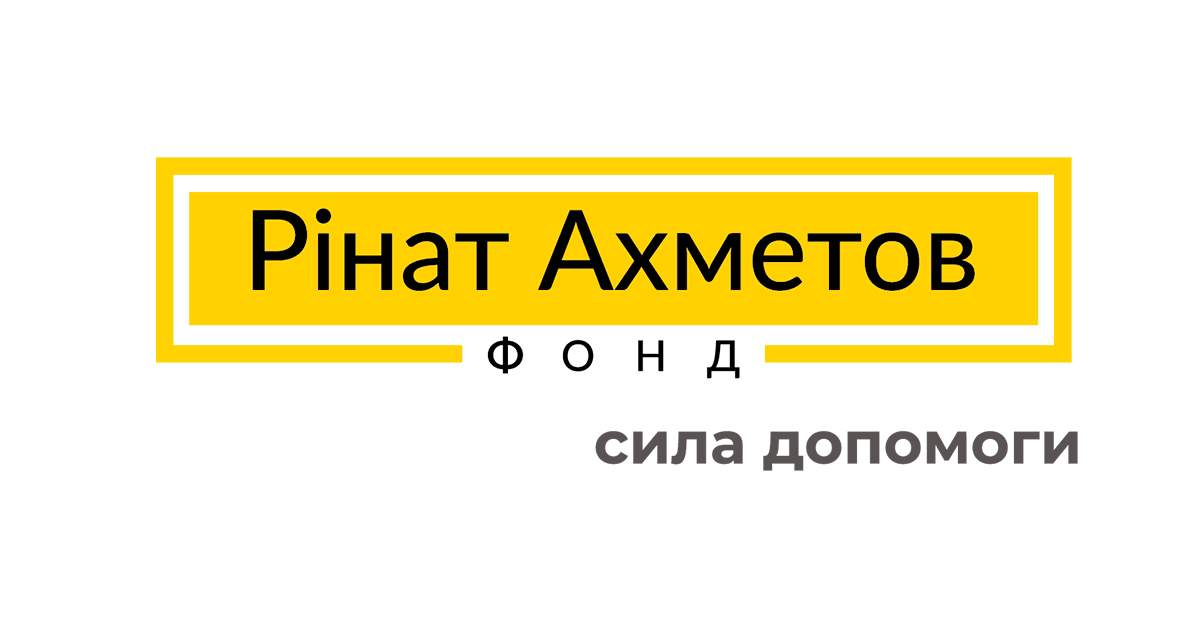Rinat Akhmetov Foundation for "Development of Ukraine" publishes the results of the survey regarding TB-related knowledge, attitudes and behavior of Ukrainians
On October 3, 2013, the Rinat Akhmetov Foundation for "Development of Ukraine" have published the results of the survey "TB-related knowledge, attitudes, practices and behavior among the general population of Ukraine and specific target groups as of 2011", as well as the brochure "TB vs. Ukrainian population: practice and behavior".
Such a comprehensive survey of TB-related knowledge, attitudes, practices and behavior was conducted for the first time in Ukraine within the "Stop TB in Ukraine" Program, implemented by the Rinat Akhmetov Foundation for "Development of Ukraine" with the support of the Global Fund to Fight AIDS, Tuberculosis and Malaria (Round 9 grant). The survey was carried out by the Analytical Center "Socioconsulting" by the request of the Rinat Akhmetov Foundation.
The survey describes the attitude of Ukrainians to the TB challenge: the awareness about the TB symptoms; willingness to seek for medical care in case of TB suspicion; TB-related myths and stereotypes; the consequences of discrepancy between knowledge and behavior of Ukrainians; barriers to optimal behavior in TB prevention and timely referral for medical care; the information needs of the population and sources of information about TB.
The survey results were used for the development, implementation and evaluation of the national and regional strategies for advocacy, communication and social mobilization, as well as for the concept development of the information campaign within the "Stop TB in Ukraine" Program aimed at the general population, and the construction of proper knowledge about TB.
"Rinat Akhmetov Foundation for "Development of Ukraine" is committed to provide accurate information to all interested parties in the fight against TB in Ukraine. By publishing this survey, we want to help key institutions to better understand patients and to achieve international standards in TB diagnosis and treatment. At the same time, as the result of the info campaign, based on the survey results, we help Ukrainians in finding the correct information about TB and encourage the TB diagnosis and treatment adherence”, says Mariya Makovetska, head of advocacy, communication and social mobilization team at the Program "Stop TB in Ukraine" at the Rinat Akhmetov Foundation for "Development of Ukraine".
The publication "TB-related knowledge, attitudes, practices and behavior among the general population of Ukraine and specific target groups as of 2011" and the brochure "TB vs. Ukrainian population: practice and behavior" shall be distributed to 140 academic libraries of Ukraine at the national the regional level, as well as the libraries of colleges and universities. The publication will be useful for healthcare leaders, representatives of the medical and social service professionals, non-governmental organizations and researchers.
The brochure in English can be downloaded from the website of the "Stop TB in Ukraine" https://www.stoptb.in.ua/en. Go to "Infocenter" / "Program Publications" section https://www.stoptb.in.ua/en/project_publications. For the complete survey publication use the following links:
https://issuu.com/akhmetovfdu/docs/karb_tb_broshure_final_ukr_webpdf, https://issuu.com/akhmetovfdu/docs/tb_pdfbook
The main survey results
The attitude of Ukrainian population to the TB challenge
The answer to the question "Whether TB constitutes a threat to the population of Ukraine in general?" was mainly affirmative (75% respondents). 20% surveyed consider TB an important issue but only “partly dangerous” for the population. 4% was not certain to answer, and only 1% of the adult population considers TB not to be a current national challenge as it is “safe”.
However, in response to the question "Whether TB constitutes a threat personally for you?" nearly half of the respondents (49%) believes they have low personal risk, 15% claimed having no such risk, 8% was not certain to answer. Only 28% of the respondents marked high personal probability of contracting TB.
The ideas of the majority respondents on TB are very vague and abstract. The TB concerns in most cases are not related to awareness of personal contraction risk. This means that our knowledge about TB hardly leads to changes in behavior.
TB symptoms
Knowledge
Main correct TB symptoms named by the respondents:
60% - cough;
28% - temperature for no apparent reason that lasts more than 7 days;
27% - cough lasting more than 3 weeks;
21% - weight loss;
17% - constant weakness or fatigue;
6% - night sweat.
Also, the respondents identified other possible TB symptoms:
24% - coughing up blood;
16% - coughing up sputum;
9% - heavy breathing;
8% - chest pain.
In addition, a small portion of respondents indicated conditionally false symptoms (such as headache, nausea, skin rashes, etc.). These symptoms may be observed among TB patients but they are not specific and decisive in TB diagnosis.
Behavior
When answering the question “What will you do if you are coughing for more than 2-3 weeks?” the respondents chose optimal behavioral strategy and stated as follows:
74% will refer to district or family doctor, to paramedic;
11% will refer to TB dispensary or TB doctor.
However, it worth stressing on the share of respondents considering self-treatment equally relevant to consulting a doctor! (implying they can either visit a doctor or a pharmacy or a folk medicine representative).
15% - I will go to pharmacy and self-treat.
3% - I will look for the info in the Internet.
2% - I will go to the folk or non-traditional medicine representative.
In order to ensure the practical use of behavioral schemes by the respondents they were to answer the additional clarifying question: “When will you visit a doctor if you start coughing?” The answers were as follows:
45% - if the cough will last more than 2-3 weeks;
30% - immediately (within first week);
11% - when self-treatment becomes ineffective;
10% - I will refer to a doctor only if I am seriously sick/feeling really badly;
3% - won’t refer to a doctor.
Thus, the majority of Ukrainians (85%) are aware that when having TB symptoms one should consult a doctor. But on the other hand, almost every fourth respondent will tend to postpone visits to a doctor upon noticing TB symptoms. Thus, 11% of Ukrainians have an intention to refer to health care facility if self-treatment is unsuccessful, 10% - if they are seriously ill and feel really badly, 3% claimed never to visit a doctor just because of cough.
A handful of people (1%) are most indifferent to their health, as they marked the “Won’t go anywhere” option. And 1% of the respondents believe they are safe from TB.
Ways of TB transmission
The basic, in terms of TB epidemic development: the airborne route of infection was stated alone by 84% of the respondents.
A common myth among respondents is that TB can be transmitted by household contacts (e.g. sharing dishes, handshake, magazines/money, door handles, handrails and other objects in public places). At least one of these alternatives was reported alone by 41% of the respondents, and by 85% surveyed with “hint” questioner.
From a third to a half of the respondents are aware of some components of individual TB prevention. However, the proportion of people indicating the full range of preventive measures (simultaneously marked all the “appropriate” answers) including “an annual medical examination” constitutes only 9%.
The survey results reported a high prevalence of misconceptions about “preventive measures” being completely meaningless and sometimes even harmful:
14% - eat a lot of beacon and/or butter;
11% - eat special substances or products;
9% - drink vodka for disinfection after contacts with someone, who coughs;
3% - close the windows in the room.
Other indicated inefficient preventive measures were as follows: eat organic food, incl. garlic/onion, drink sweet tea; wash hands after using the mobile phone; and try not to sin. Some respondents also believe that you have to wear a mask (rather a respirator) to protect yourself against TB, but this method is feasible only in case of direct contact with active TB patients (such as personnel working in TB treatment wards).
In fact, the best way of TB prevention is the timely detection and early treatment of a person who is suffering from TB, as well as providing adequate hygiene for areas where a person with TB is living and working. Moreover, it is important to take actual risk-reduction steps for personal health, including an annual health examination that contributes to the early TB diagnosis and its timely treatment.
TB Treatment
73% - know that TB is curable;
16% - deny TB curability;
11% - difficult to answer.
The respondents are mostly certain of substantial costs for the TB treatment. In general, only a quarter of respondents (25%) believe that TB can be diagnosed for free and only 7% that it is treated for free as well. However, 42% believe TB detection to be expensive or even unavailable, and 77% regard the same about TB treatment.
What we should know about TB treatment:
- TB is cured if strictly adhered to treatment regimen;
- TB treatment is lasting;
- TB is treated under medical supervision;
- TB medicines may cause side effects, but the risk they bring to human health is hundreds of times lower than the refusal from TB treatment.
The overall public awareness about TB
To assess the general level of respondents’ awareness the overall knowledge rate was developed, which is sufficient in view of the TB epidemic in Ukraine. It represents the proportion of respondents who simultaneously:
-
named without a card the key TB sign, a cough that lasts more than three weeks;
-
named without a card the main route of TB transmission (airborne when a patient coughs or sneezes);
-
know that TB can be cured.
In general, this indicator is only 17.5% implying that one out of six respondents has minimum sufficient level of TB-related knowledge suggesting conscious and timely referral to a doctor in case of TB symptoms.
Possible consequences of the differences between our knowledge and behavior
Ukrainians' attitude to people suffering from TB and even to those already cured is rather ambiguous. On the one hand, 92% of respondents believe that TB patients have to feel support and good attitude from others. On the other hand, if the issue affects them personally, then, for example, a willingness to work with TB cured was shown only by 45% of respondents. And only 33 % agreed to eat in a restaurant, knowing that the cook or waitress had and were completely cured from TB.
These data indicate a high level of stigma and discrimination against TB patients, as well as the lack of information about TB curability.
The majority of Ukrainians (85%) are aware that when having TB symptoms one should consult a doctor. But on the other hand, almost every fourth respondent will tend to postpone visits to a doctor upon noticing TB symptoms. Thus, 11% of Ukrainians have an intention to refer to health care facility if self-treatment is unsuccessful, 10% - if they are seriously ill and feel really badly, 3% claimed never to visit a doctor just because of cough.
These data reflect discrepancy between the knowledge and behavior of Ukrainians in case of TB symptoms.
Barriers preventing referral to a doctor
The main reasons that prevent respondents from visiting a doctor were as follows:
- Expensive medical care: 27% (without a card) and 44% (with a card).
- The general unwillingness to visit a doctor: 20% (without a card) and 28% (with a card).
- Distrust in doctors’ qualification and prejudice due to bad attitude of medical staff to patients: every fourth (without a card) and 42% (with a card.
- The distance to health facilities in general is not a problem for most respondents, as for 80% it takes less than 30 minutes; about a third of rural residents (28%) indicated that the nearest medical facility is within 1-2 hours’ drive from their place of residence.
- Lack of time, need to wait in lines: 17% (without a card) and 29% (with a card).
Also, Ukrainians consider the personal risk of catching TB as insignificant; therefore they delay referral to a doctor:
- High risk - 28%.
- Minor risk - 48%.
- No risk - 15%.
- Difficult to answer/don’t know - 9%.
Information needs of the population and sources of TB awareness
Informational sources on health care issues for the “average” citizen of Ukraine are very rich, according to the survey. More than half of the population receives information on health issues from four or more sources. Today, the most influential source for all socio-demographic groups is the mass media.
Most appropriate and convenient health info sources for both general population and social groups are those they already use.
But in the confidence-based info sources ranking the first place is taken by medical workers (45%) and the second by TV (40%). One should note the significantly lower level of trust among the respondents to other health info sources. This primarily applies to newspapers and magazines, Internet and radio. Very low is the level of public confidence in visual media (billboards on the streets, vehicles, etc.). Perhaps the factor that significantly reduces public trust, is that the mass media actively (even aggressively) advertise medicines and other health products.




